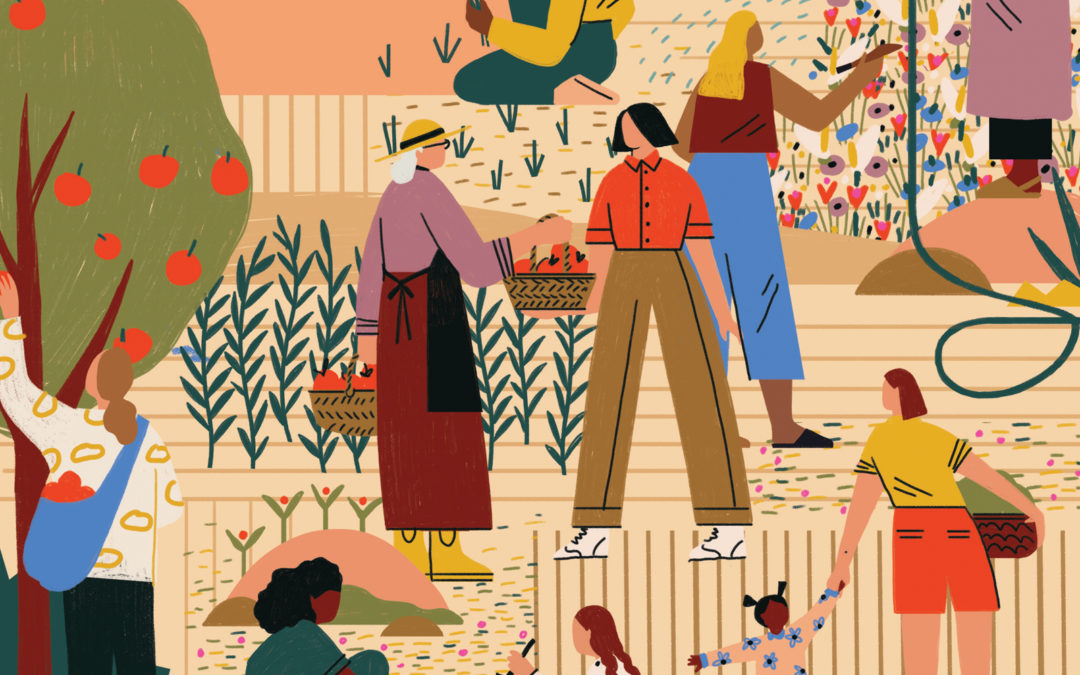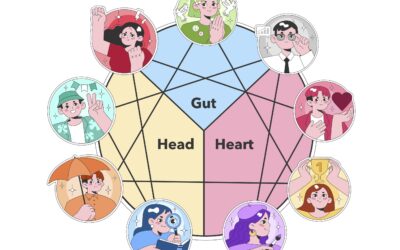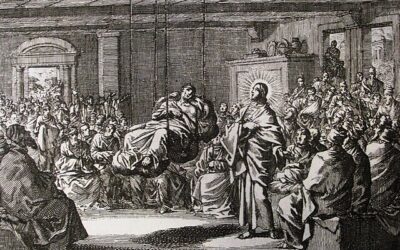by Sarah Carson—
Several years ago, I accepted an invitation to carpool to a Saturday morning diakonia class with a classmate I didn’t know very well.
It took no more than half an hour in the car to notice how different we were. I was open to embracing ambiguity; she was fact-based and methodical. Every book she enjoyed in class bored me. My favorite breakfast treat—the quiche one couple in class often brought from the farmers’ market—she wouldn’t touch.
The one difference I remember most vividly had to do with technology. During one morning drive, my classmate, an avid walker, asked if I knew where she could get a pedometer.
Looking at the smartphone in her lap, I told her, “Your phone can count your steps. You don’t need a pedometer.”
Her expression turned quizzical. “No, I’d like a pedometer,” she said.
Why? I thought, furrowing my brow.
I imagine, she also scoffed to herself: Why would I use my phone?
I attributed our differing attitudes about step tracking to our ages. She was nearly 40 years older than I was. And age—unlike the other ways we shape our opinions—is such an easy scapegoat. “Kids these days just don’t understand.” Or, “So-and-so is so old school, so unwilling to change.”
But what we learn in this issue is the Kingdom of God depends on us embracing one another. “Through actions and words that we share with the historic and global church,” Jordan Miller Stubbendick writes in “A place for us all” (p. 30),“we are gathered into the inclusive, immense family of God across generations and time.”
The family of God requires the participation of all generations. If not for the elder’s knowledge of a church’s traditions, how will a young child ever learn the language of their faith? If not for the enthusiasm of a toddler dancing to the opening hymn, how would those of us who have heard these hymns for decades remember how powerful they are?
Interdependence is not new, devotional author Christa von Zychlin reminds us. Without young Miriam intervening among the older women around her, Moses would not have led his people to freedom. And what would those people on the hillside have eaten if not for the young boy with the basket of bread and fish? Without people of different generations, we don’t grow and mature as members of a community.
“When we interact with people of other generations, we sometimes say imprecise, poorly conceived, totally upsetting things to each other,” Karris Golden writes (p. 34). “When this happens, our first option shouldn’t be to flee. Instead, we could decide to accept this about ourselves, as well as others.”
Intergenerational relationships aren’t always easy. But the challenges posed by living in community can make us stronger if we are willing to embrace differences rather than run from them.
Today I’ve walked 520 steps. Does it matter what device told me? Or does it matter more that I share a common goal with one of my sisters in Christ?
“Why are you looking for a pedometer?” I wish I’d asked. “Where do you like to walk? What does walking bring to your life?”
If instead of focusing on our differences, I’d engaged and dug deeper, I might have learned something.
Sarah Carson is associate editor of Gather.
A priceless gift
In 1993, my husband and I moved from Southern California where I’d grown up to Berkeley, where I would begin graduate school. I was excited to be on this new adventure with the man who had been my high school sweetheart. We were off on our own, and anything was...
In the image of God
If you were to attend Sunday service at Holly Grove Lutheran Church in Lexington, North Carolina, you might notice that Pastor Anna E. Carter rarely leads worship alone. As she sets the table, serves communion, and processes down the aisle, there is a little boy at...
Faith in economics
What is the rule of your household? How do you manage your home? How do you make sure that everyone gets what they need and sometimes what they want? Who feeds the dog or cleans up after the cat? Who does the grocery shopping, and who pays for the groceries? How are...





